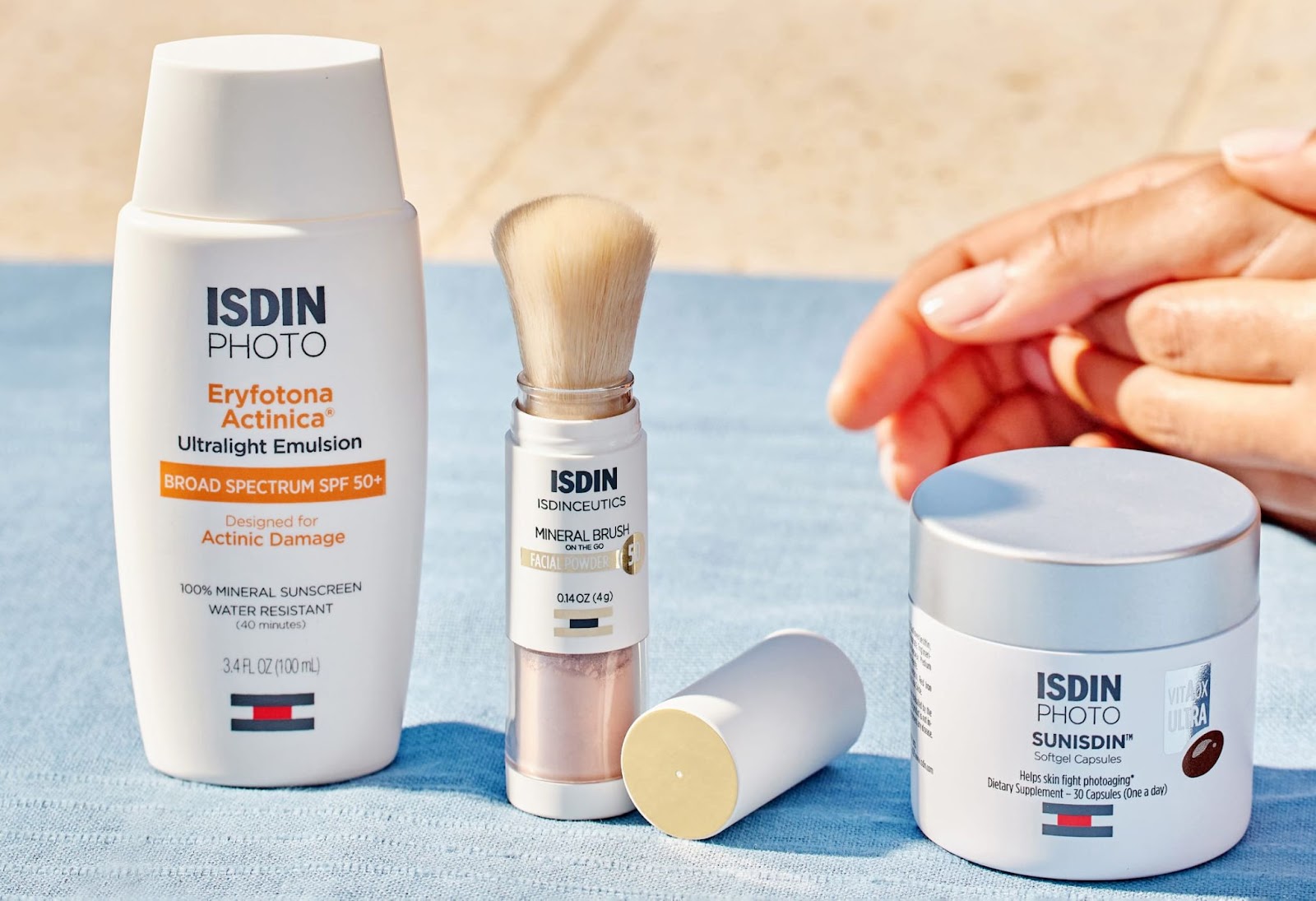[ad_1]
From relationships to skincare, life is all about balance.
And when it comes to spending time in the sun, balance is the ultimate rule. But, in terms of mental health, physical health, and enjoying life outdoors, how much time in the sun is just right?
Let’s take a look at the benefits of sun exposure and how you can decide whether you’re getting enough.
Top 4 sun benefits you should know:
1. Your sleep may improve
While ‘adventure now, snooze later’ might be your sunny weather motto, sunlight may actually help you sleep better. How? Two words: circadian rhythm.
Your circadian rhythm works like your body’s master clock. And it uses sunlight (among other things) to help align your waking and sleeping hours with day and night.1
On that point, studies show that not getting enough daytime sunlight can negatively affect your sleep cycle. Meanwhile, getting enough exposure to sunlight can help keep your rhythm right on schedule.2

2. You might feel better
No surprise here — lounging in the sun can feel pretty great. But do you know the science behind it?
There’s a hormone responsible for that sunshiny feeling. A recent study showed that exposure to sunlight can raise our beta-endorphin levels. Also responsible for ‘runner’s high’, these happy hormones are natural painkillers and mood-boosters.
But, it’s more than just a quick fix. There are a few potentially lasting mental health benefits too. Sunlight can also influence the amount of serotonin (AKA the ‘feel-good’ hormone) that your brain produces. And balanced serotonin levels may help you feel more focused, happy, and calm in your day-to-day.3
3. You can help give your body a boost of vitamin D
Also known as the ‘sunshine vitamin’, vitamin D is crucial to our overall health. It’s so important that most of our cells and organs throughout our body have vitamin D receptors. And countless health disorders have been linked to vitamin D deficiency.3
The good news? Our body can produce vitamin D with the help of sunlight. UVB radiation is the main source of producing vitamin D in the skin and the biggest source of vitamin D for the body. And overall, about 90% of our daily needs are met just by spending time under the Sun. 4
What about the other 10%? Try an antioxidant supplement formulated with vitamin D for optimal skin health. The radiance-boosting ingredients are just a bonus.

4. Some skin conditions could get better
Although the sun is the number one culprit of visible skin aging, it’s not all bad news! Certain skin conditions can actually improve with a little bit of sun exposure.
Take acne for example. Sunlight can help clear up some types of acne temporarily. Just make sure you don’t forget your broad spectrum sunscreen. Especially when some medications or skin treatments can make your skin more sun-sensitive.
How much sunlight do you need each day?
That’s a great question — but also a tough one to answer. In short, how much sunlight you need depends on your lifestyle, skin tone, and where you live. Even taking all that into account, the answer is still a little complicated…
Both too much and too little sunlight could be harmful to your health.2 Our skin has a memory, meaning any time spent in the sun adds up to the risk of skin cancer. But, if your skin isn’t used to getting a bit of sun, the risk of sunburn and resulting skin cancer can also increase.3
The bottom line? You need just enough sunlight to get all the Vitamin D you need, balance your circadian rhythm, and boost your mood. But, that necessary amount varies per person.

How much time should you spend in the sun?
There’s no one-size-fits-all answer. Here’s a benchmark you can get started with, then decide what’s best for your skin:
- People with Type II skin (burns easily, tans minimally) who live around the same latitude as Denver, Madrid, or Ankara can get all the vitamin D they need in a year with around 15 minutes of sun on the face, arms and legs, 2 to 3 times a week, between 11 a.m. and 3 p.m., May through October. 3
- People with more melanated skin will require more time in the sun to meet their vitamin D needs.3
- People living with a mainly indoor lifestyle will also likely need more time in the sun.4
- People with extremely fair skin should spend less time in the sun.3
- Make sure to get your vitamin D levels checked during a yearly medical exam with your doctor.
Daily sunshine-time tips
Always use a high SPF sunscreen to help protect your skin. Reapply as often as advised on the label. On top of that, a skin-boosting supplement can help you feel more prepared for the sunnier months. One last thing to keep in mind: studies suggest that regular sun exposure is healthier than random, sun-heavy spurts.5
Now go out and get your daily sunshine!

References: Chandra, P., Wolfenden, L. L., Ziegler, T. R., Tian, J., Luo, M., Stecenko, A. A., Chen, T. C., Holick, M. F., & Tangpricha, V. (2007, October). Treatment of vitamin D deficiency with UV light in patients with malabsorption syndromes: A case series. Photodermatology, photoimmunology & photomedicine. Retrieved July 13, 2022, from https://www.ncbi.nlm.nih.gov/pmc/articles/PMC2846322/ Rhee, H. J. van der, Vries, E. de, & Coebergh, J. W. (2016, October 19). Regular Sun Exposure Benefits Health. Medical Hypotheses. Retrieved July 13, 2022, from https://www.sciencedirect.com/science/article/abs/pii/S0306987716303966 The risks and benefits of Sun Exposure 2016. Taylor & Francis. (2015, August 27). Retrieved July 13, 2022, from https://www.tandfonline.com/doi/full/10.1080/19381980.2016.1248325 Sunlight: For better or for worse? A review of positive and negative ... (n.d.). Retrieved July 13, 2022, from https://www.researchgate.net/profile/Han-Rhee/publication/301774569_Sunlight_For_Better_or_For_Worse_A_Review_of_Positive_and_Negative_Effects_of_Sun_Exposure/links/5762d98408ae570d6e15be5c /Sunlight-For-Better-or-For-Worse-A-Review-of-Positive-and-Negative-Effects-of-Sun-Exposure.pdf What is circadian rhythm? Sleep Foundation. (2022, April 8). Retrieved July 13, 2022, from https://www.sleepfoundation.org/circadian-rhythm
[ad_2]
